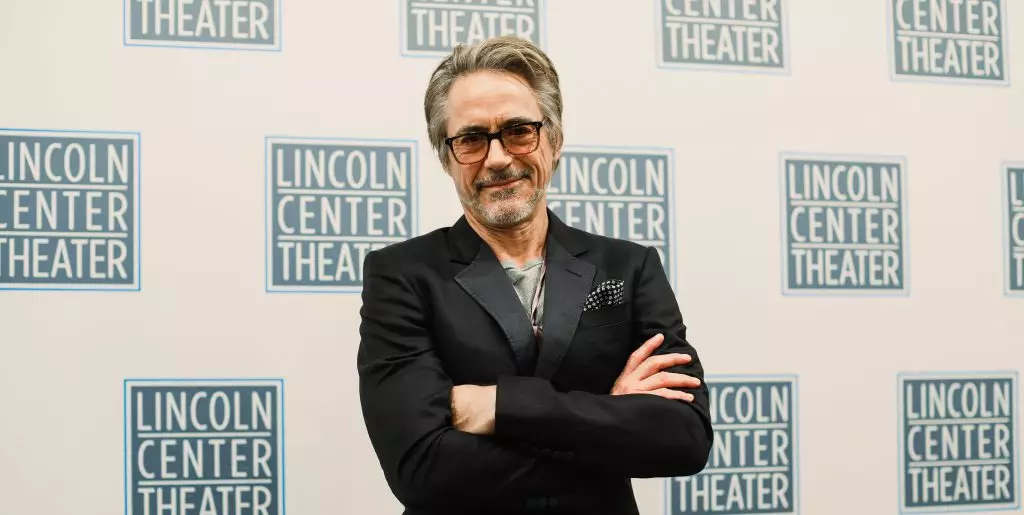In a world where the lines between reality and digital recreation are rapidly blurring, Robert Downey Jr. has drawn a clear line in the sand. The charismatic actor, best known for his role as Tony Stark in the Marvel Cinematic Universe (MCU), has expressed his unequivocal opposition to the use of generative artificial intelligence to recreate his likeness. This strong stance was highlighted during an appearance on the podcast “On With Kara Swisher,” where he engaged in a thought-provoking conversation with Pulitzer Prize-winning playwright Ayad Akhtar and prominent director Bartlett Sher. Their discussion centered around Akhtar’s Broadway debut, which tackles the pressing issues and ethical dilemmas posed by the age of AI.
Downey’s remarks reflect a deep consideration of the implications of this technology. When asked for his thoughts on deepfakes and AI recreations, he replied with a balanced perspective, indicating that while he acknowledges the changes happening around him, he prefers to focus on his “actual emotional life.” This response underscores a philosophical approach: amidst the rapid technological advances, the essence of human experience remains paramount.
One of Downey’s key assertions was his trust in the current decision-makers at Marvel. He expressed confidence that the individuals responsible for shaping the future of the MCU would not exploit his character’s legacy without his consent. He emphasized that a small group of dedicated professionals holds the reins. Downey’s introspection points toward a larger conversation about intellectual property and the need for ethical considerations in dealing with digital personas.
However, when prompted about the potential for future executives to take liberties with his likeness, Downey’s wit shone through. He quipped about the possibility of suing these unnamed future executives, suggesting that, even if he were gone, his legal team would still be active. This blend of humor and seriousness reflects his deep-rooted concerns about safeguarding artistic integrity in an era increasingly dominated by technological advancements.
Downey’s relationship with artificial intelligence is not purely adversarial. He shared insights about his long-term investments in AI companies and emphasized that his interest lies not in the technology itself, but in the character and moral ethos of the people behind these innovations. This nuanced perspective positions him as a conscientious participant in the discourse surrounding AI. His remarks about assessing the intentions of those involved in AI projects reveal a thoughtful approach. He questions their motivations, asking whether their work contributes positively to society or merely seeks profit.
This insistence on ethical engagement resonates deeply, especially in a climate where rapid developments in AI can often outpace established legal and moral frameworks. Downey seems to advocate for a collaborative approach, asking whether there is something to be learned from this evolving landscape, and how he might contribute to it constructively.
Currently, Robert Downey Jr. is busy with his role in the theater production “McNeal,” where he portrays a celebrated novelist who turns to AI for guidance in his writing. The show, running through November 24 at Lincoln Center Theater, has earned mixed reviews, with some critics dubbing it slow and convoluted, though many have praised Downey’s performance. This engagement in a narrative that intertwines the human psyche and technology symbolizes his commitment to exploring the complexities of human experience in tandem with advancements in AI.
Moreover, Downey’s path indicates a return to the superhero realm as he prepares to reprise his iconic role as Iron Man. This development suggests a continual dance between legacy and innovation, as he navigates the challenges brought about by generative AI while remaining a beloved figure in popular culture.
The discourse surrounding AI, particularly in the context of celebrity and portrayals in media, is still in its infancy. Robert Downey Jr.’s perspectives offer a blend of humor, ethical consideration, and deep personal investment in what it means to be human in an ever-evolving technological landscape. As conversations about AI deepen, Downey’s insights remind us of the necessity of maintaining an emotional connection and moral compass as we explore the digital frontier. His commitment to this dialogue not only reflects his own values but also serves as a beacon for future generations of creators and consumers navigating the world of AI and entertainment.


Leave a Reply